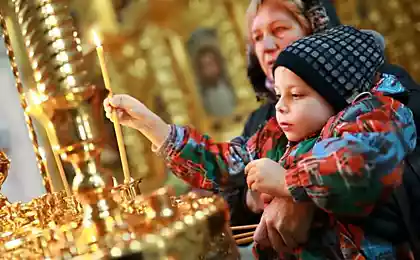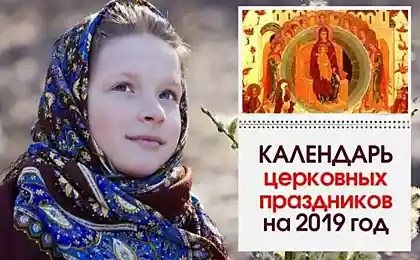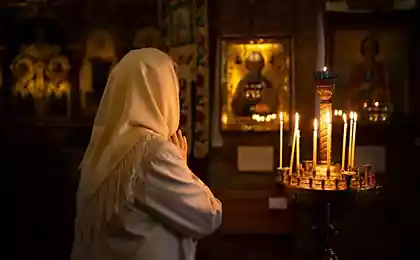169
Agrafena Bathing Day
On July 6, a very bright summer holiday falls on the calendar - Agrafena Bathing Day. In Russia, this day was considered a holiday of the Sun, the beginning of mowing grass and the entry of summer into its legal rights. It has many traditions and folk-ritesabout which the editorial board "Site" He'll gladly tell you.
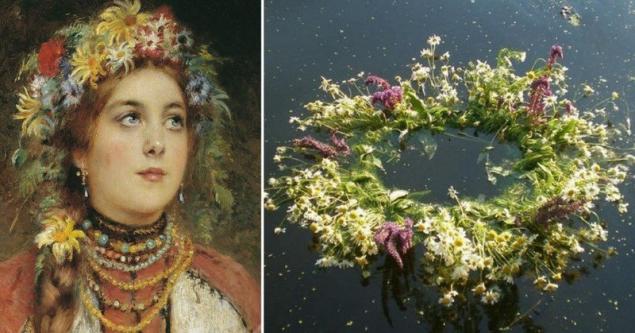
People say that Agrafena is the sister of Ivan Kupala, because the traditions of these holidays are firmly intertwined with each other. Many summer holidays were associated with water, and bathing day was no exception. For the first time, people were allowed to swim in open water.
In the Christian tradition, this day marks the day of St. Agrippina, who lived in ancient Rome. From early childhood, the girl decided to devote her life to faith and service to the Savior. But her zeal was noticed by pagans, who brutally tortured the girl, forced to renounce her faith. Agrippina was martyred. Believers from all over the world pray to the saint for strengthening in the faith, and pilgrims visit her burial place to be healed.
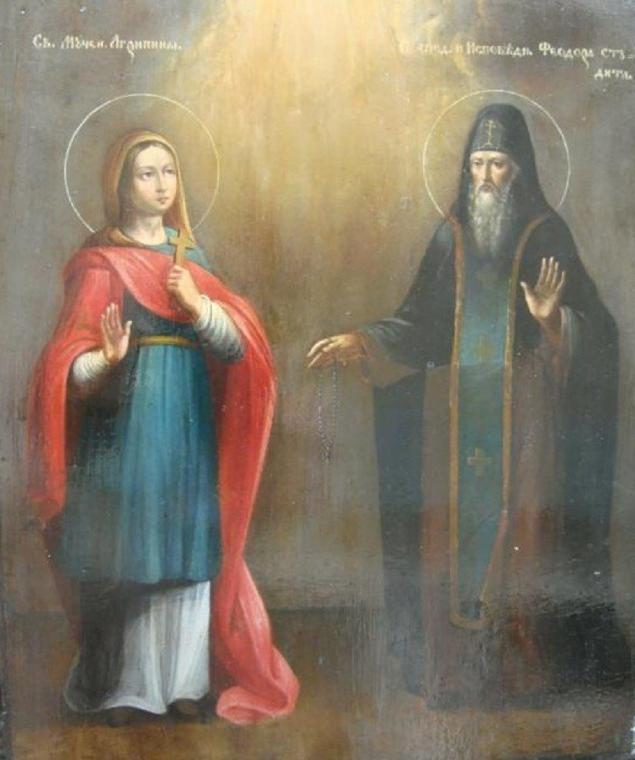
This day for our ancestors was full of domestic chores and worries. Traditionally, healing herbs and roots were collected on this day. It was believed that the herbs collected on this day will have a special healing power. Some of them are used for tea, as decoctions for steam in baths and to create fresh brooms. The rest of the raw materials were carefully processed and harvested for the winter.
After collecting herbs, brooms were necessarily harvested for the bath. They are used not only to wash well, but also for a health effect. Even water on this day was considered healing, believed that it receives from the sun life-giving power, useful for people. People on this day bathed in rivers and lakes, steamed in a bath and poured water from wells.
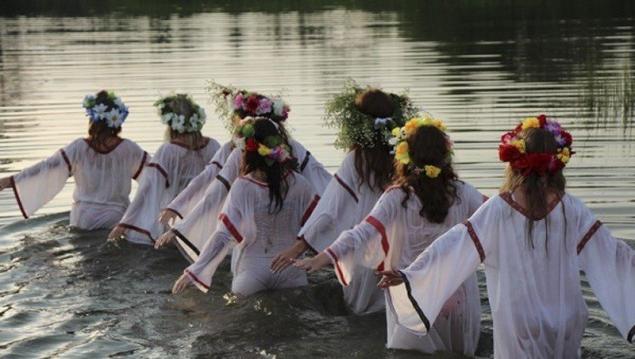
In the baths soared with new brooms, composed of many medicinal herbs. Only bathing in the bath on July 6 was held without men, because there women read special prayers, conspiracies and amulets for love. For women, it was a special day, they carefully prepared for the coming bathing night: weave wreaths, prepare divinations and read conspiracies.
In addition, it was women who were engaged in the procurement of bath brooms. To do this, after lunch, the girls harnessed horses and went to the forest to break young birch branches. Ritual wreaths were made from different trees and plants. Each broom came in a branch from birch, alder, cherry, willow, linden, currants, potions, ash and many herbs.
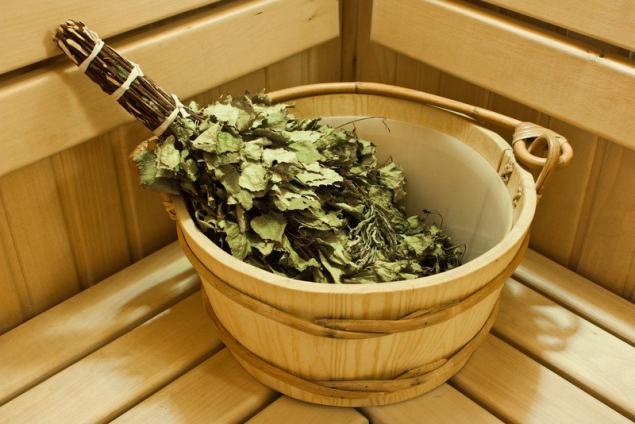
But still the main tradition of this day is mass bathing in water bodies. It is said that water will wash away all negativity and give people good luck for the whole year. If you do not have the opportunity to go to an open pond, just take a bath with the addition of herbs. All water is healthy on this day.
There are several interesting rituals on this day. The most famous of them is water. It is accepted to pour all except children and the elderly. There are villages that still follow this tradition.
For women, there is a special ritual - washing with dew. It was believed that the evening dew on July 6 can rejuvenate the skin and give a woman beauty and health. When washing, it is customary to read the conspiracy: “Water and water, make me more beautiful, so that life seems nicer to me.”

This day should be spent in care, but do not forget about the fun. The only ban on this day is bluster and bad thoughts. You need to have fun, be saturated with the positive energy of water and sun to recharge it for the whole year. There are few bans on this day, but there are a handful of interesting folk signs.
Folk signs
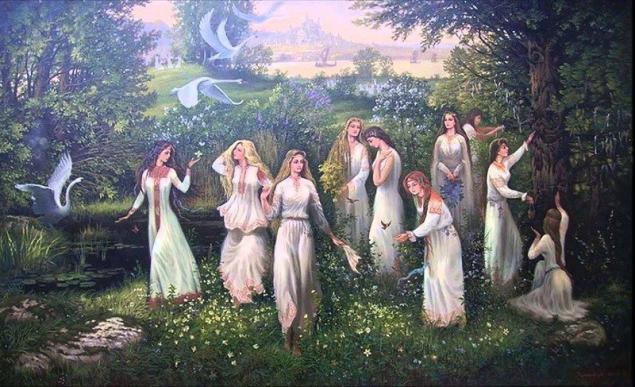
Now you know how to spend the day of Agrafena Bathing and what unusual signs and ceremonies were observed on this holiday by our ancestors. Also do not forget that after Agrafena comes the holiday of Ivan Kupala, who has many of his own traditions and rituals. Have a good holiday!
Was the article useful to you? Share it with your friends!

People say that Agrafena is the sister of Ivan Kupala, because the traditions of these holidays are firmly intertwined with each other. Many summer holidays were associated with water, and bathing day was no exception. For the first time, people were allowed to swim in open water.
In the Christian tradition, this day marks the day of St. Agrippina, who lived in ancient Rome. From early childhood, the girl decided to devote her life to faith and service to the Savior. But her zeal was noticed by pagans, who brutally tortured the girl, forced to renounce her faith. Agrippina was martyred. Believers from all over the world pray to the saint for strengthening in the faith, and pilgrims visit her burial place to be healed.

This day for our ancestors was full of domestic chores and worries. Traditionally, healing herbs and roots were collected on this day. It was believed that the herbs collected on this day will have a special healing power. Some of them are used for tea, as decoctions for steam in baths and to create fresh brooms. The rest of the raw materials were carefully processed and harvested for the winter.
After collecting herbs, brooms were necessarily harvested for the bath. They are used not only to wash well, but also for a health effect. Even water on this day was considered healing, believed that it receives from the sun life-giving power, useful for people. People on this day bathed in rivers and lakes, steamed in a bath and poured water from wells.

In the baths soared with new brooms, composed of many medicinal herbs. Only bathing in the bath on July 6 was held without men, because there women read special prayers, conspiracies and amulets for love. For women, it was a special day, they carefully prepared for the coming bathing night: weave wreaths, prepare divinations and read conspiracies.
In addition, it was women who were engaged in the procurement of bath brooms. To do this, after lunch, the girls harnessed horses and went to the forest to break young birch branches. Ritual wreaths were made from different trees and plants. Each broom came in a branch from birch, alder, cherry, willow, linden, currants, potions, ash and many herbs.

But still the main tradition of this day is mass bathing in water bodies. It is said that water will wash away all negativity and give people good luck for the whole year. If you do not have the opportunity to go to an open pond, just take a bath with the addition of herbs. All water is healthy on this day.
There are several interesting rituals on this day. The most famous of them is water. It is accepted to pour all except children and the elderly. There are villages that still follow this tradition.
For women, there is a special ritual - washing with dew. It was believed that the evening dew on July 6 can rejuvenate the skin and give a woman beauty and health. When washing, it is customary to read the conspiracy: “Water and water, make me more beautiful, so that life seems nicer to me.”

This day should be spent in care, but do not forget about the fun. The only ban on this day is bluster and bad thoughts. You need to have fun, be saturated with the positive energy of water and sun to recharge it for the whole year. There are few bans on this day, but there are a handful of interesting folk signs.
Folk signs
- Plant turnips on the swimsuit - a good harvest will grow, health will increase, will not leave you hungry.
- He was born on July 6 and his family was very useful. Share your good fortune, but do not be afraid of difficult things.
- On the day of the bathing suit, wash bolder, whiter, sweeter and fitter.
- Dew in the morning wash, fortify.
- Look at the ants: in the heaps run - to be rain, on the paths crawl - wait for warmth.
- It will rain on the bathing suit for another five days.

Now you know how to spend the day of Agrafena Bathing and what unusual signs and ceremonies were observed on this holiday by our ancestors. Also do not forget that after Agrafena comes the holiday of Ivan Kupala, who has many of his own traditions and rituals. Have a good holiday!
Was the article useful to you? Share it with your friends!




